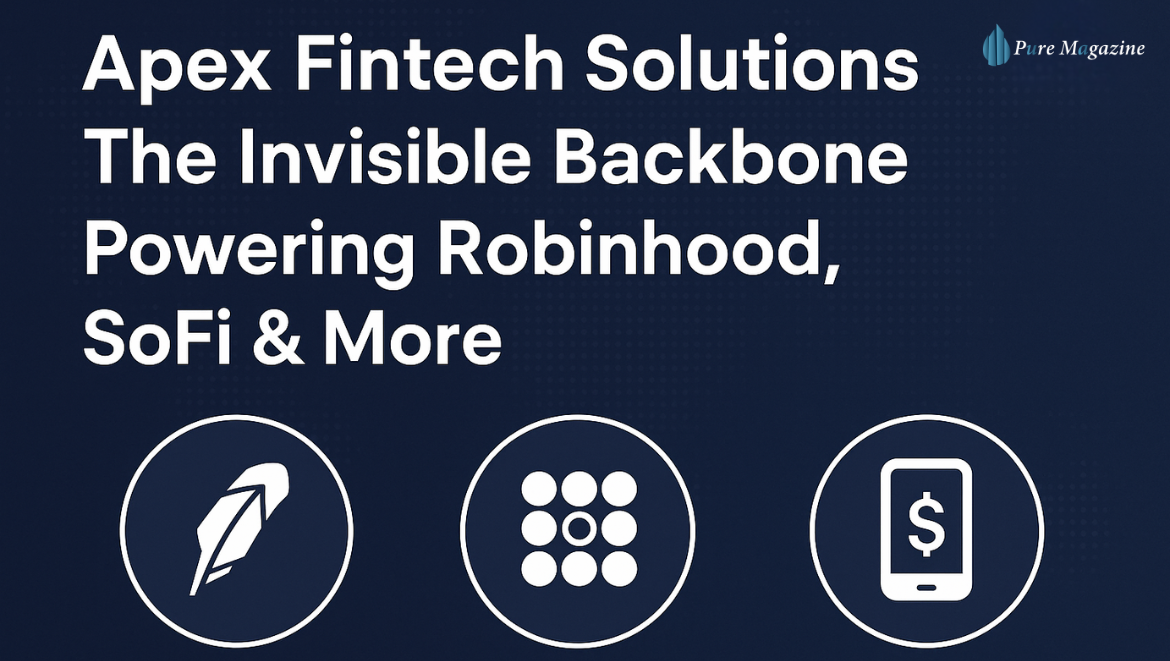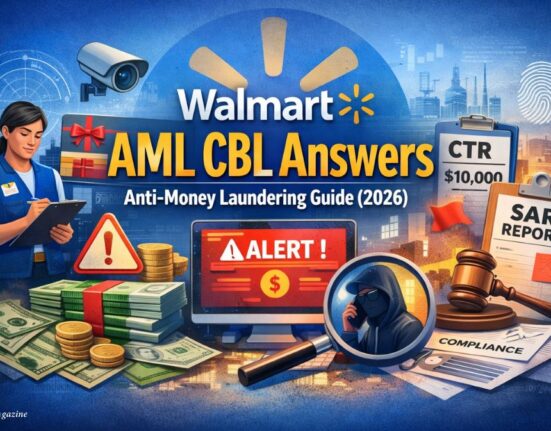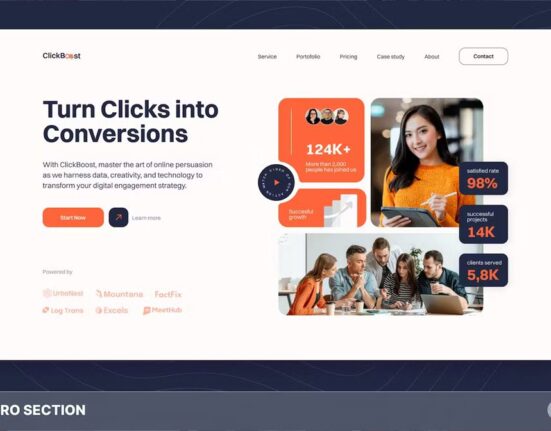Ever wondered who’s quietly running the wires behind your favorite trading app? While Robinhood, SoFi, or Public get the headlines, there’s a less flashy name that makes sure your trades actually settle, your assets stay safe, and your app doesn’t crash mid-market rally. That name is Apex Fintech Solutions.
They don’t chase the spotlight. Instead, they’re the “fintech for fintechs” — the invisible infrastructure that powers modern investing. Think of them as the power grid for digital finance: you don’t notice it until it fails, and then you realize just how critical it is.
What Is Apex Fintech Solutions?
At its core, Apex Fintech Solutions builds the rails for digital investing. They enable seamless access, faster trade settlement, and modern investor experiences that traditional clearing houses often can’t match.
While most fintech firms obsess over customer-facing features, Apex does the heavy lifting underneath. They’re not here to design the flashy app you tap every day — they’re the infrastructure that keeps it running.
It’s like building a skyscraper: the architect may get the credit, but without steel and concrete, nothing stands. Apex is that steel.
The Story Behind Apex
The backstory reads like a fintech thriller. In 2012, Penson Worldwide — a struggling clearing and custody firm — was on the brink of collapse. Enter PEAK6, a Chicago-based investment firm. For $60 million, they scooped up the business, rebranded it as Apex Clearing, and turned a near-bankruptcy into a fintech goldmine.
By 2015, big names like Robinhood, Wealthfront, and Betterment were already using Apex to scale fast. What started as a rescue job became the backbone of the digital investing boom.
And then came the big payday: in 2021, GTCR (a private equity giant) acquired a majority stake in Apex at a $4 billion valuation.
Why Was Apex Worth $4 Billion?
Private equity doesn’t spend $4B on hype. They saw a business model investors dream about:
- Recurring revenue – fees tied to every trade, every account, every month.
- High margins – once the pipes are built, scaling adds little cost.
- Regulatory moat – setting up a clearing firm isn’t something a startup can copy overnight.
In other words, Apex owns “sticky plumbing.” It might not sound glamorous, but it’s the kind of infrastructure you can’t rip out once it’s in place. That’s what makes it gold.
Who Owns Apex Fintech Solutions?
Today, Apex is backed by GTCR, with PEAK6 still holding a minority stake. This combo gives them financial muscle and deep industry experience.
GTCR brings the capital and strategic scaling know-how. PEAK6 brings a trading DNA that keeps Apex agile and tech-driven. Together, they give Apex the resources to keep pushing fintech boundaries.
What Does Apex Actually Do?
So, what’s under the hood? Apex isn’t just one product — it’s a full fintech toolkit.
Core Services:
- Clearing & Custody – the bread and butter. Apex ensures trades settle, assets are held securely, and compliance checks run smoothly.
- Digital Infrastructure – powering apps that serve tens of millions of investors. Whether you’re buying fractional shares or trading crypto, Apex likely runs part of it.
- Apex Ascend – a cloud-native, B2B platform built for real-time scalability. Perfect for fintechs that need speed without building from scratch.
- Crypto Services – through Apex Crypto LLC, they support trading and custody in the digital asset space.
The Apex Advantage
Most fintechs can’t afford to build infrastructure from zero. Apex lets them launch faster and cheaper, without sacrificing compliance. For startups, it’s like renting Formula 1 pit crew support instead of building your own garage.
Company Overview: Numbers That Matter
- Revenue: Around $263M annually
- Employees: ~900 worldwide
- Clients: Hundreds of fintechs, serving tens of millions of investors
- Industry footprint: Over 16K followers on LinkedIn, showing strong B2B engagement
They’ve also bagged multiple industry awards for innovation, and they’re not shy about acquisitions — like FinTron, which bolstered their wealth-tech offerings.
Who Competes With Apex?
Apex isn’t alone in the fintech plumbing game. Competitors include:
- DriveWealth – specializing in fractional shares and global fintech partnerships
- Interactive Brokers (IBKR) – the OG giant serving active traders and institutions
- BNY Mellon Pershing – the traditional clearing powerhouse for legacy brokerages
But here’s the kicker: DriveWealth is niche, IBKR is trader-focused, Pershing is old-school. Apex carved out the sweet spot — the go-to partner for fintech startups scaling in the U.S.
Careers at Apex: Why People Join
Apex doesn’t just build platforms; it builds careers. With hubs in Dallas and Chicago, plus flexible work options, the company attracts engineers, compliance pros, and client managers who want to shape the future of finance.
Glassdoor reviews often mention:
- Fast-paced environment
- Hands-on fintech impact
- Opportunities to grow with a scaling company
In other words: not your typical stuffy finance shop.
Is Apex Fintech Solutions Legit?
Absolutely. Apex isn’t some flashy startup running on fumes. They’ve been around since 2012, are regulated by FINRA and the SEC, and offer SIPC coverage up to $500,000 for brokerage accounts.
Their clients — from Robinhood to SoFi — trust them with billions in assets. That doesn’t happen without rock-solid credibility.
The Future of Apex
Looking ahead, Apex is positioned at the crossroads of fintech’s hottest trends:
- API-first everything – developers love the plug-and-play approach.
- Crypto + digital assets – Apex Crypto keeps them in the blockchain conversation.
- Embedded finance – non-financial apps offering investing will need Apex-grade infrastructure.
- AI in fintech – think smarter compliance, fraud detection, and automated account onboarding.
Global expansion is also on the radar. As fintech adoption spikes worldwide, Apex’s model could scale across borders.
Why Apex Matters
In today’s world, every company is becoming a fintech company — banks, apps, even retailers, embedding financial services. And when that happens, someone has to supply the pipes.
That someone is Apex.
Without them, fintechs would spend years reinventing infrastructure instead of innovating for users. With them, the next Robinhood or SoFi can launch in months, not decades.
FAQs
Q1: What is Apex Fintech Solutions?
A: Apex Fintech Solutions provides clearing, custody, and digital investment infrastructure for fintech apps, powering platforms like SoFi, Betterment, and Stash.
Q2: Who owns Apex Fintech Solutions?
A: Apex is majority-owned by GTCR, with PEAK6 holding a minority stake, giving the company strong financial backing and strategic guidance.
Q3: Is Apex Fintech Solutions legit?
A: Yes. They are SEC-registered, FINRA-membered, and SIPC-insured, trusted by major fintechs for over a decade.
Q4: Why was Apex valued at $4 billion?
A: The valuation reflects recurring revenue, high margins, and barriers to entry — building a regulated clearing and custody platform isn’t easy.
Q5: Which fintech apps use Apex’s infrastructure?
A: Apps like SoFi, Betterment, Stash, Robinhood (early stages), and Public.com rely on Apex for clearing, custody, and digital investment services.
Final Verdict
Apex Fintech Solutions isn’t a household name — and that’s the point. They don’t want your attention. They want your trust.
From their dramatic rescue story in 2012, to their $4B private equity takeover, to their role powering today’s fintech unicorns, Apex has proven one thing: the future of finance runs on invisible rails, and they’ve built them.
So next time you buy a stock in seconds on your favorite app, remember — Apex is probably the one making sure it actually happens. And in fintech, that’s the kind of reliability you want.
Visit: Pure Magazine








